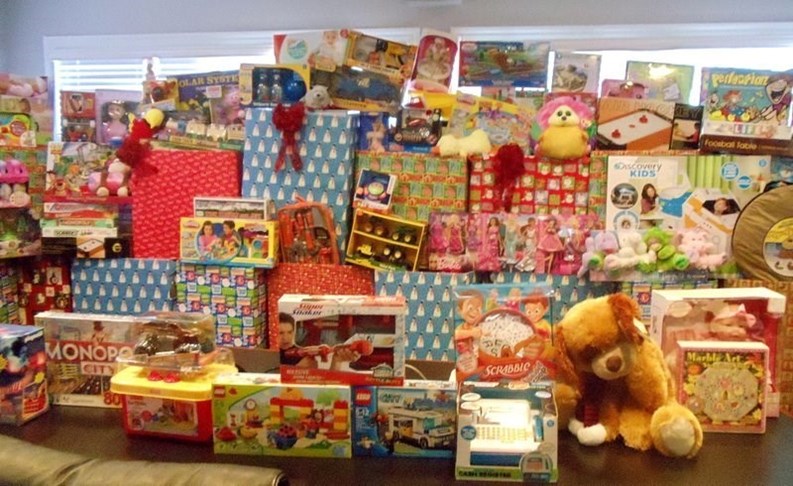In a condo or community association, socializing among owners sometimes is limited to quick chitchat by the mail slots or saying hello over eggnog in the lobby come December.
That’s why some residents who live there—whether in an urban high-rise or a country townhouse setting—can sometimes feel isolated and disconnected from their neighbors.
“I think it’s a sign of where we are today. It seems that every minute we have available, people have to be doing something, whether it’s work, exercise, spending time with families or checking out the Internet,” says Jim Toscano, PCAM, president of Property Management of Andover in Andover, Massachusetts. “I have seen bonding dwindle in recent years. It’s not that people don’t want to socialize, they love to do it if there’s an opportunity, but finding time is hard.”
Most people involved in a condo association believe that building a sense of community is valuable as it creates a network of communication and support among condo residents and ultimately improves the quality of life within the community.
“I think the responsibility comes down to a combination of the management company, the board and the residents themselves,” says Steve Hornsby, president/portfolio manager for HM Management in Attleboro, Massachusetts. “Some people might be very proactive in helping these situations out and getting people to go and I think it’s important to foster that and build a strong community.”
Whether that means a summer barbecue, pumpkin carving with the kids in October or a monthly wine and cheese night, associations should work to plan events that help bring the community together.
“It’s such a positive thing,” says David J. Levy, PCAM, president of Sterling Services in Holliston, Massachusetts. “When you get to know your neighbors in a social setting, rules violations are reduced in frequency and reduced in friction. It’s much easier to resolve issues in a social setting than in front of a board.”
Event Planning
Sure, it’s easy to get people to come together for a holiday party in December or to get the kids teamed up for some trick or treating in October, but holidays aren’t the only time that socialization should be going on.
“A lot of associations are strapped and don’t want to spend money on things like that, but we’ll kick in some money for food or drinks and encourage people to get together,” Toscano says. “The more interaction among residents, the easier it becomes to manage a property and for that property to thrive. The more people know and are involved makes my job easier.”
That’s why Toscano has spearheaded some unique get-togethers over the years.
“We had the Philharmonic [orchestra] play at one of our clubhouses one night for the residents. We had a really good turnout,” he says. “We also have selectmen come by to talk about what’s going on in the town. Every election time, we invite them to come in and we have a sort of roundtable so they can get to know people.”
Levy hosts three barbecues every year, one for a specific property and the other two town-wide.
“The one in the spring has a very big immigrant population, primarily Brazilians who speak Portuguese, and we had over 500 people come out this year,” he says. “It’s a very positive thing for the community and lets people get to know their neighbors and connect on a level that just smiling in the hall doesn’t allow.”
Sterling Services also makes sure that they don’t forget the children and throughout the events hold things like a dunk tank, jungle gym, spin art, slushie machine, face painting and more.
“In the past, we’ve had the fire department come to let them play on the truck and take pictures,” Levy says. “Sometimes the police come and let them go back and forth in their cruisers.”
Lack of Involvement
When a property is inhabited by people who are basically strangers to one another, it sets the tone for a negative condo living experience.
“I have seen communities where no one goes to meetings and no one talks and the property went to hell because no one cared,” Hornsby says. “I think had there been a lot of get-togethers, activities, meetings and things like that, they would have cared more about the property itself.”
An idea Hornsby had that didn’t cost a lot of money and helped the condo itself was an organized clean-up day for all the residents.
“In all my properties, I try to set aside a couple of hours one day for people to get together and we will buy donuts and lunch and it’s like a team bonding experience,” he says. “When people are helping they care more and things run the way they should.”
Legal Issues
A party is a great idea, but it’s important that you don’t do anything that violates your insurance or the law.
According to attorney Merle Hass of the law firm of Goodman, Shapiro & Lombardi, LLC in Dedham, Massachusetts, there are risks that come with hosting a community-wide event.
“The big problem is when liquor is served because that can create a lot of liability issues,” she says. “It’s a great thing when a condo association wants to have a party or get together, but the board needs to be safe. It’s useful to talk to their lawyer and especially their insurance provider.”
Hass says that a condo can usually get a one-day rider protecting them from risks that alcohol or a party can bring. This way, if someone falls, injures themselves or has an accident related to the alcohol, the condo is covered.
If a social event is scheduled for a condominium that involves music or a movie, another legal issue that probably doesn’t come to mind involves copyrights.
“They just need to plan ahead and make sure they don’t run afoul with the law,” Hass says. “I’m all in favor of community-building and as long as they do things right, there shouldn’t be any problems.”
Meeting at Meetings
There’s no better place for residents to meet than at a monthly meeting and many of the management companies and boards do what they can to entice people to show up.
“Meetings are important and people can get a lot of value out of those,” Hornsby says. “We might pay for donuts or drinks to get people to come.”
A closer building will encourage more people to show up and by attending social events in the building, you might even find an ally on a topic that you are bringing up.
“It definitely does help in a more social atmosphere with people interacting as people will step forward to take part in committee work and become educated on how the board runs,” Toscano says. “When people feel connected to where they live and connected to neighbors, they are more likely to run for the board and turnover is always a good thing.”
You would think that the close proximity of apartments in a high-rise would almost force people to develop a sense of closeness, and be closer than those in sprawling townhouse villages, but Hornsby says that it actually can cause the opposite effect.
“For the most part, urban areas are younger and have more scheduling issues,” he says. “In rural areas, there are more older residents and they seem to care a little more about the association and common areas.”
Outside the Box
For the longest time, people in one of Levy’s condo communities asked about holding garage sales, but it went against the bylaws. He solved this problem by allowing a community-wide yard sale once a year that helped bring people together.
When one of Hornsby’s communities came up a little short on its budget, he organized a community-wide bowling night to help raise money.
“We had a raffle and a lot of people came out, had some fun and we were able to solve the money issue,” he says. “Things like this are always great for building camaraderie.”
Levy has also instituted a Secret Santa among residents and planned a remembrance to honor the 10th anniversary of 9/11.
And for the past decade, a number of eastern Massachusetts associations have joined forces with condo vendor ServiceMaster by Gilmore Brothers in Framingham and the U. S. Marine Corps to collect toys for needy children during the holiday season. Collection boxes are set up in condominium common areas in November, and the new toys are collected in time for Christmas gift-giving. The program, organizers say, helps to connect not only neighbors withinin the condominium, but also condo residents with the community at large.
Staying in Touch
Five years ago, newsletters were a great way to keep people interested in their community as they would highlight different things and people, but today, they aren’t as big a help in creating community.
“People like to know what’s going on. I would say websites are bigger now,” Toscano says. “You don’t want to become a social sheet, but blogs, emails, newsletters…every little bit helps.”
Keith Loria is a freelance writer and a frequent contributor to New England Condominium.







Leave a Comment